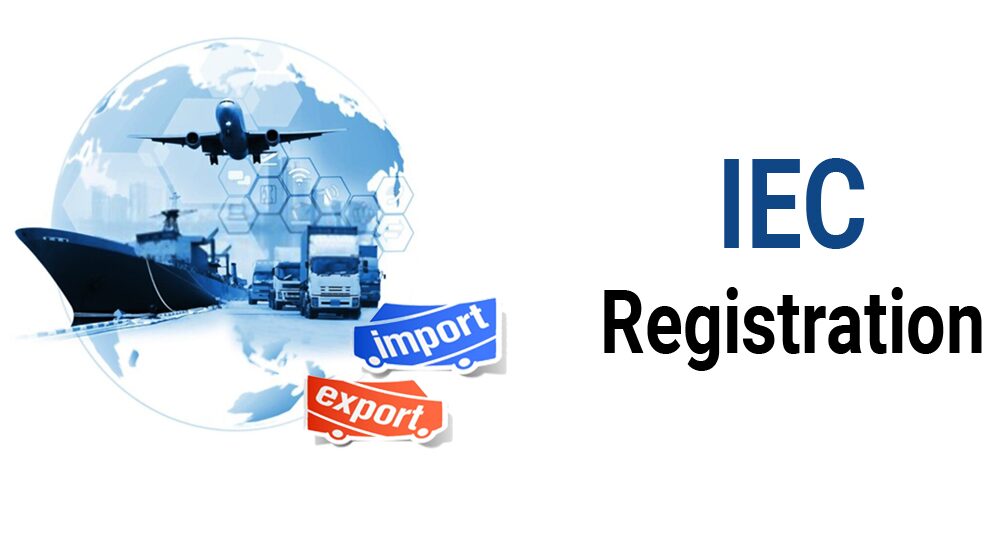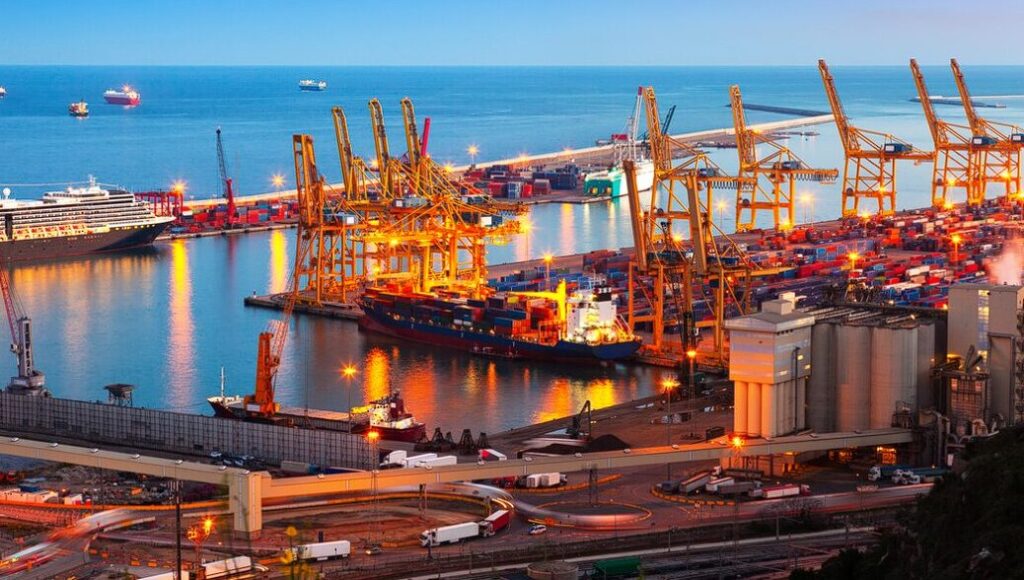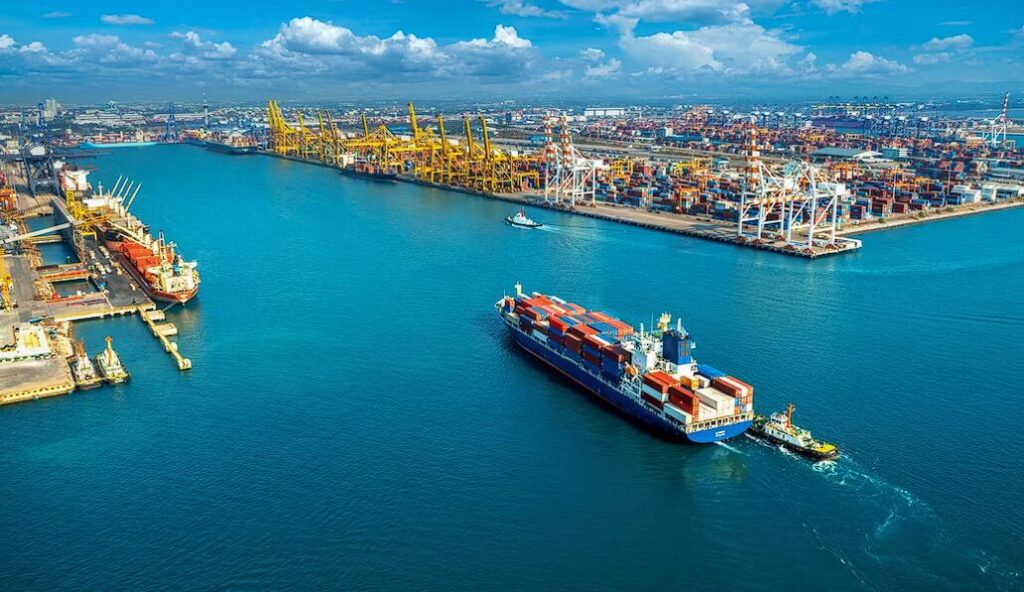Importer Exporter Code Registration In Delhi.
Importer Exporter Code Registration (IEC) is a mandatory requirement for businesses engaged in importing or exporting goods and services from India. This unique 10-digit code, issued by the Directorate General of Foreign Trade (DGFT), serves as a key identifier for international trade transactions and customs clearance processes. Here’s a comprehensive description of the IEC registration process and its significance:

Importer Exporter Code Registration
Determine Eligibility: Ensure that you are eligible to apply for an IEC code. Generally, any individual, partnership firm, LLP, company, or any other entity engaged in international trade can apply for an IEC code.
Visit DGFT Website: The Directorate General of Foreign Trade (DGFT) is the authority responsible for issuing IEC codes in India. Visit the official DGFT website to access the online IEC application portal.
Create an Account: If you are a new user, create an account on the DGFT website. Provide the required details to register and create your login credentials.
Access Online Application Form: Log in to your DGFT account and access the online IEC application form. Fill out the application form with accurate information about the applicant and the nature of the business.
Submit Required Documents: Upload scanned copies of the necessary documents as per the requirements specified by DGFT. Common documents required for IEC registration include:
- PAN card
- Aadhaar card or Passport (for identity proof)
- Bank certificate or canceled cheque
- Digital photograph of the applicant
- Partnership deed (in case of partnership firms)
- Letterhead (in case of proprietorship)
Pay Application Fee: Pay the applicable application fee for IEC registration through the online payment gateway provided on the DGFT portal. The fee amount may vary based on the nature of the applicant (individual or entity).
Once verified, submit the application electronically through the DGFT portal.
Track Application Status: After submitting the application, you can track the status of your IEC application online through the DGFT portal. You may receive updates and notifications regarding the application process via email or SMS.
Issuance of IEC Code: If the application is approved and processed successfully, the IEC code will be issued electronically by DGFT. Download and save the IEC certificate for future reference.
Compliance and Renewal: Ensure compliance with the rules and regulations governing international trade and commerce. The IEC code is valid for a lifetime and does not require renewal unless it is canceled or surrendered.
Benefits of Importer Exporter Code Registration
Legal Requirement: The IEC code is a legal requirement for carrying out import and export activities in India. It serves as a unique identification number for businesses engaged in cross-border trade.
Global Market Access: With an IEC code, businesses gain access to global markets and can engage in international trade with countries worldwide. It allows businesses to explore new opportunities for importing raw materials, machinery, equipment, and exporting finished goods or services.
Expansion Opportunities: The IEC code enables businesses to expand their operations beyond domestic boundaries and tap into international markets. It facilitates business expansion, growth, and diversification by accessing a wider customer base and new business opportunities.
Facilitates Customs Clearance: The IEC code is essential for customs clearance purposes. It helps streamline the import and export process by providing a standardized identification number recognized by customs authorities for tracking and monitoring shipments.
Establishes Credibility: Holding an IEC code enhances the credibility and reputation of businesses engaged in international trade. It demonstrates the business’s commitment to compliance with import-export regulations, transparency in transactions, and adherence to global trade practices.
Enables Government Benefits: Businesses with an IEC code may avail themselves of various government benefits, incentives, and schemes aimed at promoting international trade and export competitiveness. These benefits may include export incentives, duty drawback, export promotion schemes, and access to export finance facilities.
Participation in Global Trade Events: With an IEC code, businesses can participate in international trade exhibitions, fairs, and events to showcase their products or services, network with potential buyers or suppliers, and explore business collaborations on a global scale.
Fosters Economic Growth: The IEC code plays a significant role in driving economic growth and development by facilitating international trade, fostering foreign exchange earnings, promoting investments, and enhancing export competitiveness.
Compliance with Regulations: Obtaining an IEC code ensures compliance with regulatory requirements governing import-export activities in India. It helps businesses operate legally, avoid penalties or fines for non-compliance, and maintain transparency in international transactions.
Enables E-commerce Exports: E-commerce sellers and exporters require an IEC code to sell goods or services internationally through online platforms. It enables e-commerce businesses to reach global customers and expand their market presence in the digital economy.
How to Register for an IEC License Online?
Create an Account: If you are a new user, you need to create an account on the DGFT portal. Provide the required details to register and create your login credentials.
Access Online IEC Application Form: Log in to your DGFT account and access the online IEC application form. This form allows you to apply for a new IEC license.
Fill out the Application Form: Complete the online application form with accurate information about yourself or your business. Provide details such as name, address, PAN number, contact information, and nature of business.
Upload Required Documents: Scan and upload the necessary documents as per the requirements specified by DGFT. Common documents required for IEC registration include:
- PAN card
- Aadhaar card or Passport (for identity proof)
- Bank certificate or canceled cheque
- Digital photograph of the applicant
- Partnership deed (in case of partnership firms)
- Letterhead (in case of proprietorship)
Pay Application Fee: Pay the applicable application fee for IEC registration through the online payment gateway provided on the DGFT portal. The fee amount may vary based on the nature of the applicant (individual or entity).
Once verified, submit the application electronically through the DGFT portal.
Track Application Status: After submitting the application, you can track the status of your IEC application online through the DGFT portal. You may receive updates and notifications regarding the application process via email or SMS.
Issuance of IEC License: If the application is approved and processed successfully, the IEC license will be issued electronically by DGFT. Download and save the IEC certificate for future reference.
Compliance and Renewal: Ensure compliance with the rules and regulations governing international trade and commerce. The IEC code is valid for a lifetime and does not require renewal unless it is canceled or surrendered.



Exemption of Import Export Code
Exemption for Personal Use: If you are importing or exporting goods for personal use and not for commercial purposes, you may be exempt from obtaining an IEC code. Personal use typically refers to items for personal consumption or gifts and not for resale or commercial purposes.
Exemption for Certain Categories of Goods: Some specific categories of goods may be exempt from the requirement of an IEC code based on government notifications or policies. These exemptions may vary depending on the nature of the goods and the purpose of import or export.
Exemption for Agencies of the Government: Government agencies or departments involved in importing or exporting goods for official purposes may be exempt from the requirement of an IEC code.
Exemption for SEZ Units: Special Economic Zone (SEZ) units engaged in import and export activities within the SEZ may be exempt from the requirement of an IEC code for transactions within the zone.
Exemption for Certain Categories of Services: In some cases, specific categories of services may be exempt from the requirement of an IEC code. However, this exemption is subject to government regulations and policies.
Exemption for Transactions below a Specified Threshold: There may be exemptions for transactions below a certain threshold value. If the value of the import or export transaction falls below the specified threshold, an IEC code may not be required.
Exemption for Transactions with Nepal and Bhutan: In certain cases, transactions involving trade with neighboring countries like Nepal and Bhutan may be exempt from the requirement of an IEC code, subject to specific conditions and government regulations. Contact us know.
